Saving Whales with Tom Grove, PhD
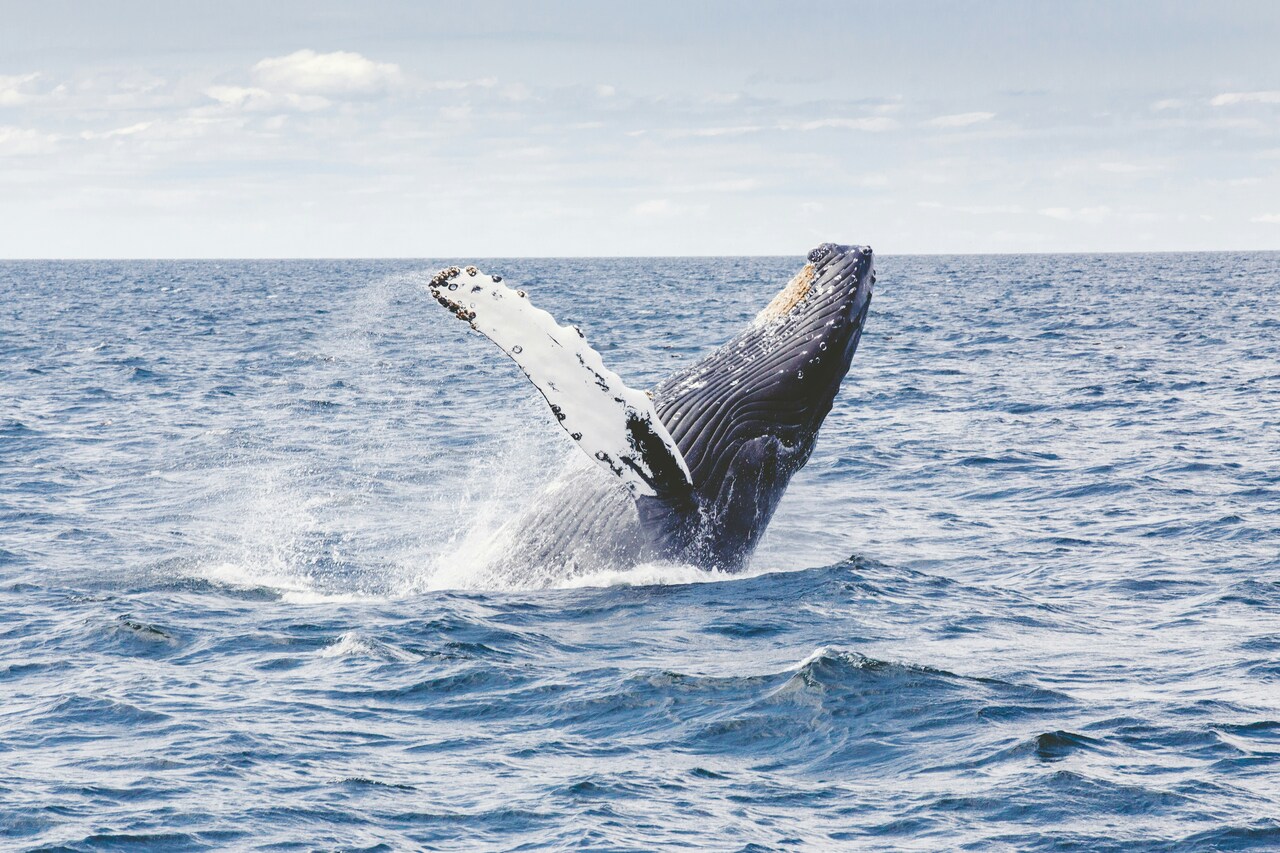
My name is Flavia, and I am a part of WildHub’s Conservation Catalyst programme, which is all about creating engaging content through interviewing experts in the field of conservation about their expertise and experience. I currently work as a researcher and lecturer in Sweden, and I have a life-long obsession with the Arctic and all things whales.
Last week I had a chance to chat with Dr Tom Grove from Whale Wise about his career in marine conservation, his experience of setting up a charity and his passion for advocacy work in protecting whales in Iceland. Tom grew up in South Wales but currently lives in the Westfjords, northwest Iceland, where he co-directs a small whale research and engagement charity, Whale Wise. Whale Wise is dedicated to advancing marine mammal conservation through scientific research, advocacy, and public engagement. The team works to understand the complex interactions between whales and human activity, focusing on evidence-based protection, sustainable practices and the involvement of local communities. They mostly operate in Iceland and the UK.
Please find the conversation below.
Flavia: Could you tell us a bit about yourself? What made you pursue a career in marine conservation?
Tom: I grew up by the sea, in South Wales and whilst the marine life there is quite different from Iceland, it is still amazing. I spent a lot of time on the water with dolphins and porpoises in particular, and I just fell in love with cetaceans. There was something about them that I found very enigmatic, mysterious, and I felt a very strong connection to them. It was the connection I felt with those animals that motivated me to get involved in marine conservation and try and make a positive difference.
Flavia: What is your background? Where did your journey begin with whale conservation?
Tom: I did a BSc in Natural Science and after that I spent a couple of years interning for various marine research and conservation groups, with a focus on whales, in Iceland, the Cook Islands and Canada. I then did a PhD at the University of Edinburgh based on the work I did in Iceland. While I was there studying humpback whales, I noticed that the whale-watching industry was quite unregulated and there was no policy to specify how boats should behave around whales. So I decided for my PhD to study the interactions between whale behaviour and vessels, basically trying to look at whether there were potentially negative impacts, whether we could change an existing voluntary code of conduct, and how that was enforced and shared to mitigate those impacts.
I got to spend a lot of time in Iceland and completely fell in love with this part of the world. People joined me to help with my PhD, to conduct fieldwork and together we decided to broaden the work we were doing, so we started using drones a lot more to study whale behaviour and focus on different threats, like coastal development. Our work started to grow and that’s how Whale Wise started.
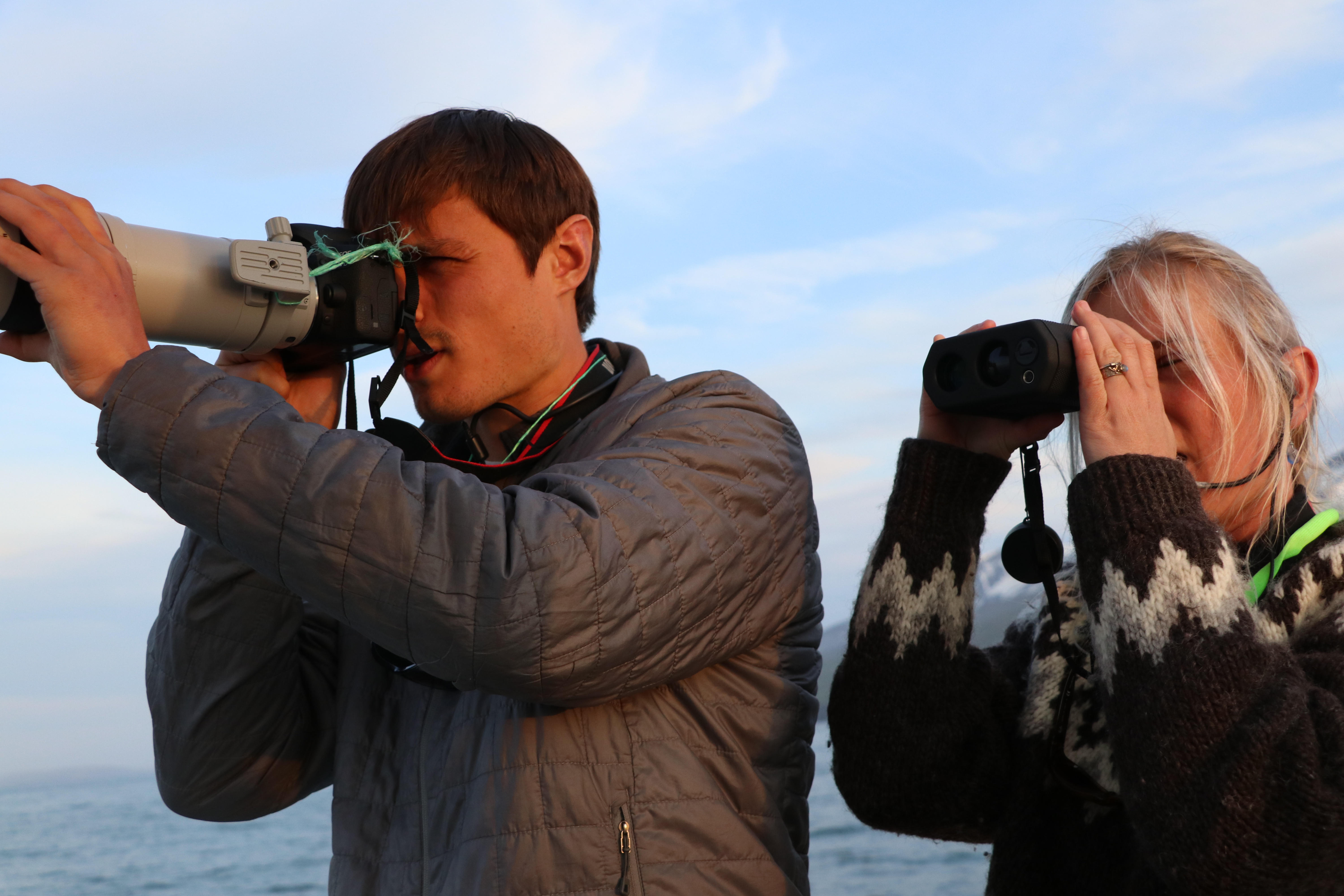 ©Whale Wise
©Whale Wise
Flavia: Could you tell us more about your current position as co-director of Whale Wise? What was the biggest challenge in setting up your own charity?
Tom: It is a journey of growing, learning and making mistakes. We run the charity as a team of volunteers, and we are trying to improve our fundraising capacity. Fundraising is definitely challenge no. 1 for being a small charity. Now we are at a stage where in the field we cover nearly all of our costs for volunteers, so people don’t need to pay for travel, food and accommodation when volunteering for us.
We became a charity in April 2021 and around the same time we were filmed by a BBC film crew about some of our blow sampling work. That’s an exciting new method which consists of flying a drone through the blow of a whale to collect samples. The segment in the TV series Our Changing Planet was aired in 2022, presented by Chris Packham, and that made a huge difference. That kind of exposure changed the direction of our charity, it was the source of so many of our funds and useful contacts.
With a charity you have to believe that the work you are doing is going to speak for itself in the future. If you believe in the cause you are advocating for, and your work is inclusive, effective and rooted in evidence, you have to have faith in the process and believe that you are going to make it. But it does take a little bit of luck too. Having that break with the BBC was the result of our hard work but also took the luck to get that break.
If you believe in the cause you are advocating for, and your work is inclusive, effective and rooted in evidence, you have to have faith in the process and believe that you are going to make it. (Dr Tom Grove, Whale Wise)
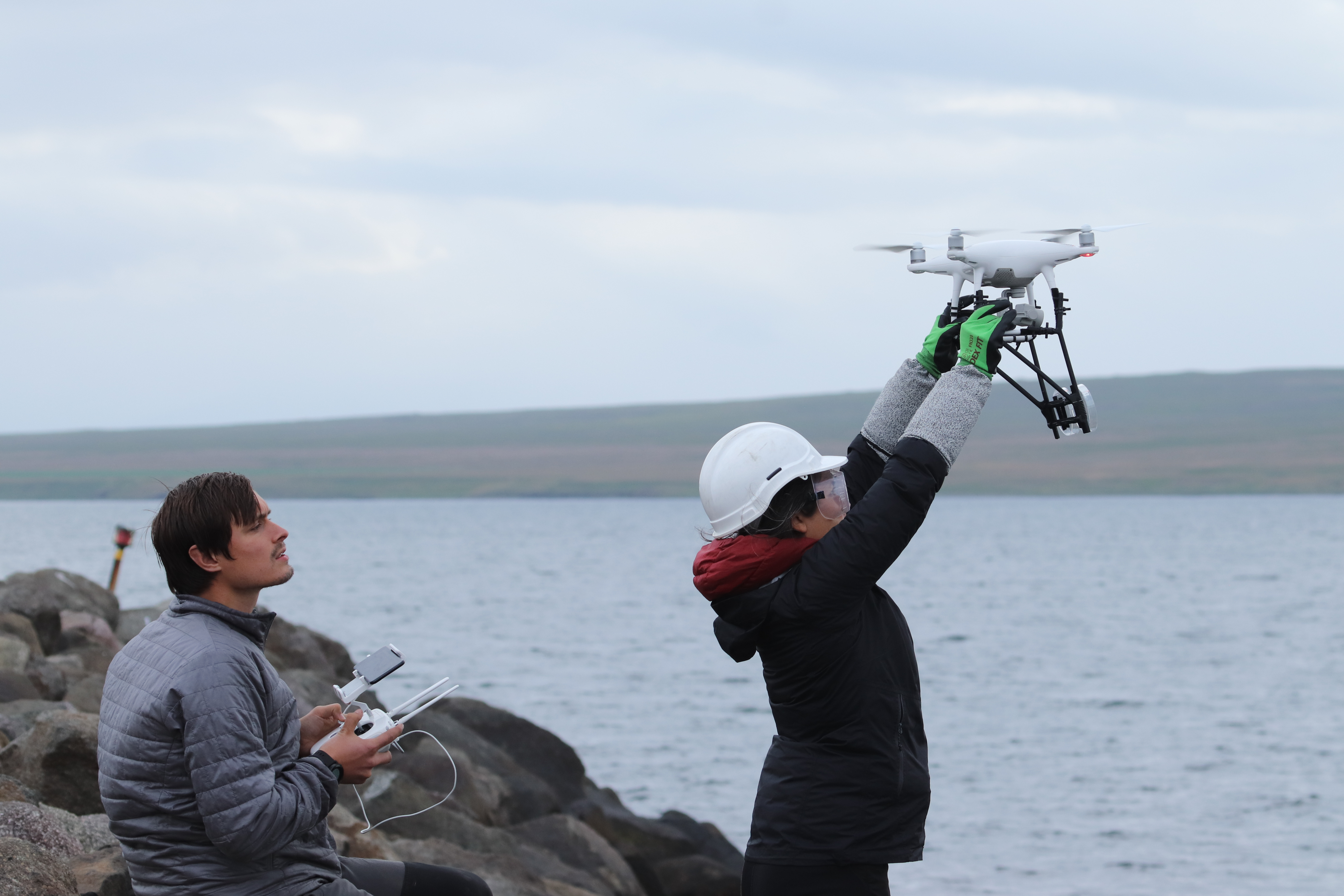 ©Whale Wise
©Whale Wise
Flavia: What do you feel are the biggest threats to whales in Iceland?
Tom: The biggest threats for the species I am studying, such as humpback whales, orcas, minke whales and blue whales, are:
- Entanglement in fishing gear, that’s where a whale gets caught in fishing gear and that limits its ability to swim and perform critical activities such as feeding and breathing. This is a big threat across the world, not just in Iceland. As fishing efforts continue to expand geographically, the threat of entanglement is increasing.
- Vessel traffic, which is twofold: direct mortality, so the threat of vessel collision also known as ship strikes, where basically ships hit whales; and then the more insidious and less obvious threat of underwater noise pollution. As our oceans get busier and busier, they are also getting louder. The sound of vessels can travel hundreds of miles in the open ocean, and this can have a huge impact on the ability of whales to live. For whales pretty much all communication takes place through vocalisation, through calls and singing, and some whales also rely on vocalisation and sounds to find their way and to catch prey. It is hard to convey the impact of vessel noise to humans because it takes place in a world that’s different from the world we live in, but it is just as serious as vessel collision.
- Climate change, the extent of the impacts of climate change on whales are still difficult to study and measure but climate change is undoubtedly one of the greatest threats. For example, we are seeing whales shifting diets from one prey to another, from krill to fish, but it is hard to know if whales are being negatively impacted or they are adapting to new conditions.
Flavia: Speaking of whale-watching and the impact vessels have on whales, what should people watch out for when seeking responsible tour operators in Iceland?
Tom: The situation is somewhat complex. There is one voluntary code of conduct in Iceland which is run by IceWhale, the Icelandic Whale-Watching Association. On their website there is a list of companies who publicly subscribe to the code of conduct, so as a minimum you should choose a company who is following that code of conduct. However, this code of conduct is voluntary, and while IceWhale is doing an amazing job, they are a small charity with limited resources and cannot constantly monitor these companies to ensure they are actually following this code of conduct. Compliance isn’t perfect amongst these companies, and this isn’t limited to Iceland. It is a big problem because companies cannot legally be held to account with these voluntary codes.
To an extent, you are going to take a leap of faith so 1) try and do as much research as you can, perhaps have a look at negative reviews on Tripadvisor; 2) for your own experience and also for the sustainability of the industry, choose areas where there are fewer boats. One company I would actively promote, which we have been working with, is called Láki Tours. They operate in two different areas in Iceland, in both areas they are the only boat, and they behave very responsibly around whales. They also support multiple research organisations in the work they do.
Importantly, you should own your power and influence as a consumer and as a tourist. Before boarding a whale-watching boat, familiarise yourself with the code of conduct and then see how the boat behaves around whales, be a witness! Is the boat approaching really quickly? Is the boat approaching really close to the whale? Is the boat joining many other boats around whales? If you are concerned about a company, talk to them! I think it is important to have tourists as witnesses who are willing to call out companies on practices that they see as unacceptable.
I think it is important to have tourists as witnesses who are willing to call out companies on practices that they see as unacceptable. (Dr Tom Grove, Whale Wise)
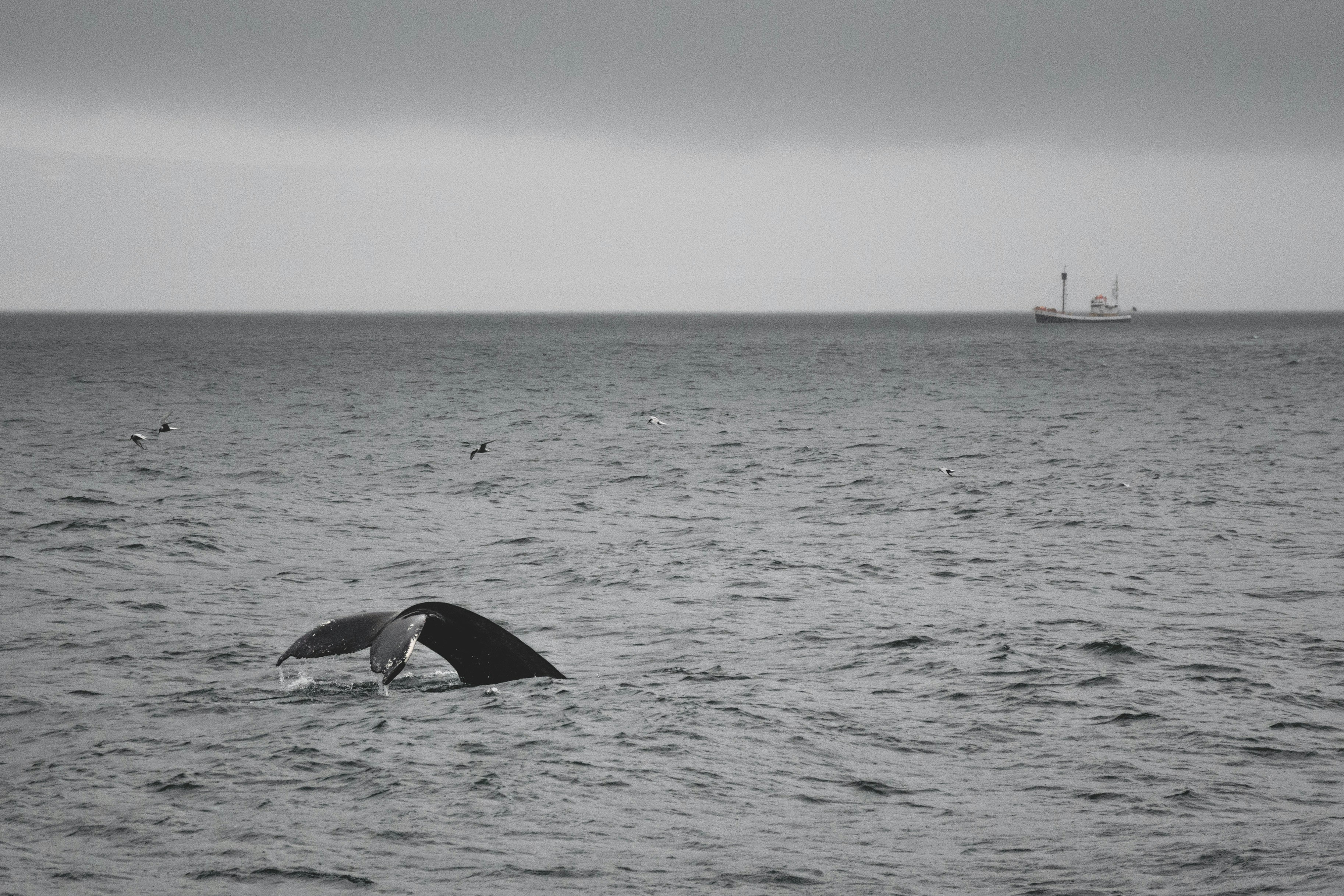
Flavia: What advice would you give early career professionals wanting to work in marine conservation?
Tom: I am going to give one really specific tip. We are a small charity and still get loads of people reaching out wanting to volunteer or do their theses with us, but lots of the emails we receive are very generic. So, find the organisation you most care about, where you seem to have a realistic chance to get an opportunity with, and really look at what they do, what their projects are, where they are working, what opportunities they are offering. When you reach out, make sure to show that you’ve looked into their organisation and tell them why you are interested in working with them specifically.
One other advice is to never be afraid to reach out to people, to anyone whose work you are passionate about. It is a vulnerable thing to do, and you are going to get a lot of rejections but be brave about it.
Flavia: Finally, what do you hope to see happen in whale conservation in the future?
Tom: I want to see a better connection between scientists, businesses and policymakers. I want to see businesses doing genuine good marine conservation work and being rewarded for it. This requires scientists and conservationists to work with these prickly, challenging businesses. It requires some difficult conversations but if you think that these conversations can lead to the greatest positive impact, in my case for whales and more broadly for the world and all of us who rely on a healthy, thriving natural world, then these conversations need to be had.
🐳
We are having a profound impact on our marine life and have a moral duty to safeguard the amazing creatures we are blessed to share this planet with. Marine biologist and nature writer Rachel Carson, author of the milestone book Silent Spring, once wrote:
For most of us, knowledge of our world comes largely through sight, yet we look about with such unseeing eyes that we are partially blind. One way to open your eyes to unnoticed beauty is to ask yourself, "What if I had never seen this before? What if I knew I would never see it again?" (R. Carson, The Sense of Wonder, 1965).
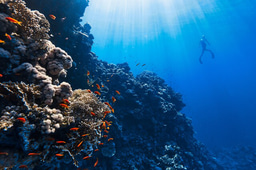
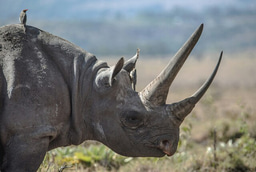
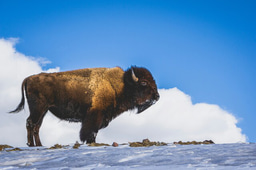
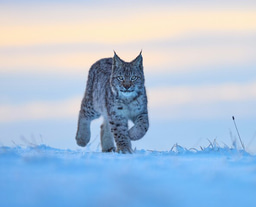
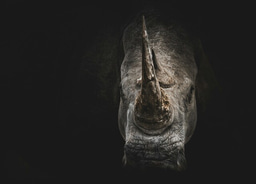
Please sign in or register for FREE
If you are a registered user on WildHub, please sign in
Thank you for publishing this insightful interview, Flavia! It's clear that care and effort went into this piece—from your thoughtful questions to the way you’ve highlighted Tom’s inspiring journey and insights. Thank you both for sharing such a meaningful conversation with our community.
@Thomas Grove, I was interested by your mention of the importance of being inclusive in your work. What strategies have you found most effective to achieve that?
Looking forward to learning more from both of you!